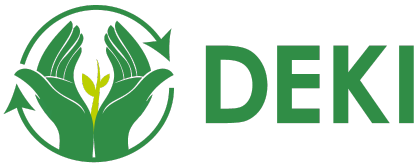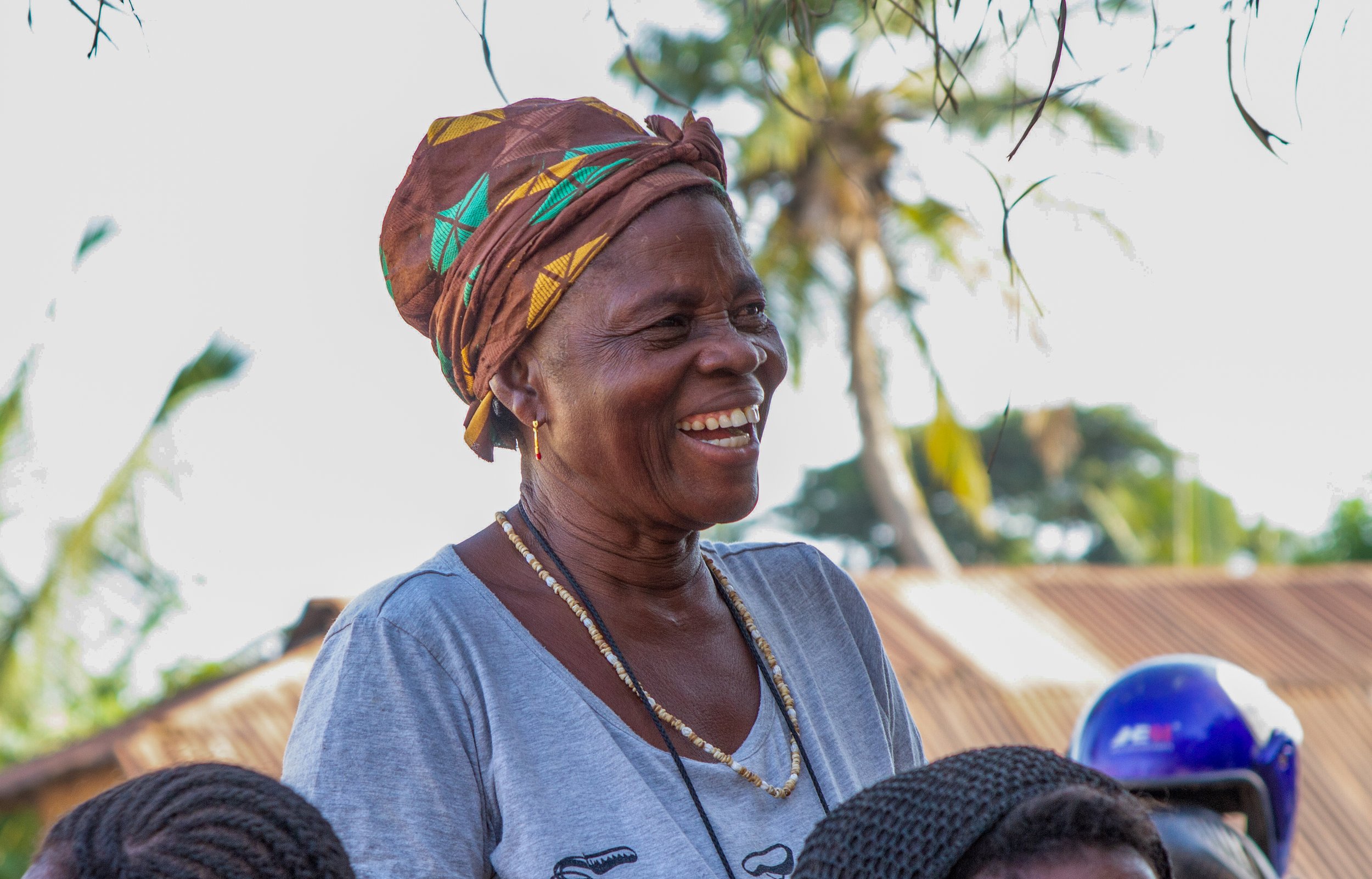How the borehole repair improved life in Loome
“Thank you for giving us the gift of water”
– Chief Koto Taga, Loome
It was a long drive to meet the Mother Club of Loome on one of our last days during our visit to Togo, back in November 2022.
These dusty red roads would take us into the heart of rural Togo. The deserted main road stretched out for miles in front of us, only passing the occasional car or truck with nothing for miles except the open spaces of land stretching out beside us and the small clusters of schoolchildren walking home after lessons.
The sky was a brilliant blue with only a few clouds dotted above us and the bright sun hitting our faces through the car windows. It was hard to imagine how hot it would be outside once we got to our destination.
We stopped in Kévé on the way to meet with members of the IADES team who would take us to Loome. They would join us on motorbikes as the roads around Loome were nearly impassable for most vehicles.
When we arrived, the whole village had gathered to meet us including their Chief, Togbui Koto Taga. They were seated in their meeting area, which was covered with leaves and branches and gave relief from the midday sun. There was the occasional rustle from above as lizards ran between the leaves.
The young children gathered wide-eyed around their mother’s knees to catch a glimpse of the visitors. The village elders had plastic chairs beside the chief, and other village members came as close as they could, some sat on bits of broken logs and upturned buckets, while others stood around the edge of the gathering, whilst teenagers curiously leaned against a nearby tree or against the borehole itself.
Chief Koto Taga welcomed us to their village and told us how proud they were of it, and even though they are very far away, he wanted to give thanks to Deki and IADES for remembering them, for remembering that there are some people who suffer, and that we didn’t forget about them.
He thanked us for giving them the gift of water and gave us blessings for the success of all our projects.
This message from him and his people touched us deeply and the memory of his words will stay with us for a very long time.
The Chief spoke about how the borehole had been broken on and off for the last 12 years, and during that time people had come to repair it, but it had broken again and again until eventually, no one came to repair it. Since then, the women in the village had been collecting water from a nearby river on the other side of the forest, and from the borehole in a neighbouring village, if the village allowed it.
The women of Loome were aware that the water from the river was dirty and knew that as a result, many people, especially the older people and the children, were suffering from stomach aches, but they didn’t have a choice.
The women have already noticed since the borehole was repaired, that fewer people are getting sick, and they are happy that they don’t have to walk so far to collect water anymore.
The 27 members of the mother club have already begun their WASH training and have completed their first module and have already started the second.
During the first module, they learned how water becomes contaminated, how waterborne diseases are spread, and how important it is to drink clean water. They also learned how essential hand washing with soap is to their continued health, and helping to prevent the spread of infections and disease.
The second module begins by promoting good hygiene practices at home; encouraging children to wash their hands after school, and for all family members to wash their hands with soap before cooking, before eating, and after using the toilet. The second half of the module focuses on the safe handling, transport, and storage of water, ensuring the safety of the water at the time of drinking.
The Loome Mother Club have already learned how to protect the water from source to mouth making sure that the water is germ-free by storing their water, away from animals, in clean containers with lids to prevent contamination and using a two-cup system or tap to pour the water for drinking. Module two also focuses on the management and maintenance of water points. Mother Clubs have the responsibility for the upkeep and to care for their water source and learn how to keep the pumps and areas around the borehole clean, as contamination can still occur if there is cracked drainage or stagnant water near the area.
Being members of the mother club has brought the women of the village closer, together they keep the village clean and teach their children how to work together and help each other.
This was clear during our visit, as the children were helping each other to fill their water containers and taking turns using the pump for the others who were smaller. Two teenage girls seemed to be the ones the younger children turned to for help and it was lovely to watch their camaraderie.
The mother club have actively encouraged the groups’ solidarity and always look after each other, should someone need help. One member told us that when she had a baby, the other women had bought her soap and gathered wood for her because she was too weak.
When we asked what their dreams are for their village, the women replied that they need to be able to pay the fees for their children to go to school, so they can go to university and get a degree so they can work for an organisation like Deki and help them to develop their village.
They would like an education program in the village to teach them how to read and write, as only 5 or 6 members of the mother club can currently do so, as many of them missed out on their education. Before we said our goodbyes, the women of the mother club sang a song of thanks to us, their faces shining with happiness and their small children fast asleep on their laps.












